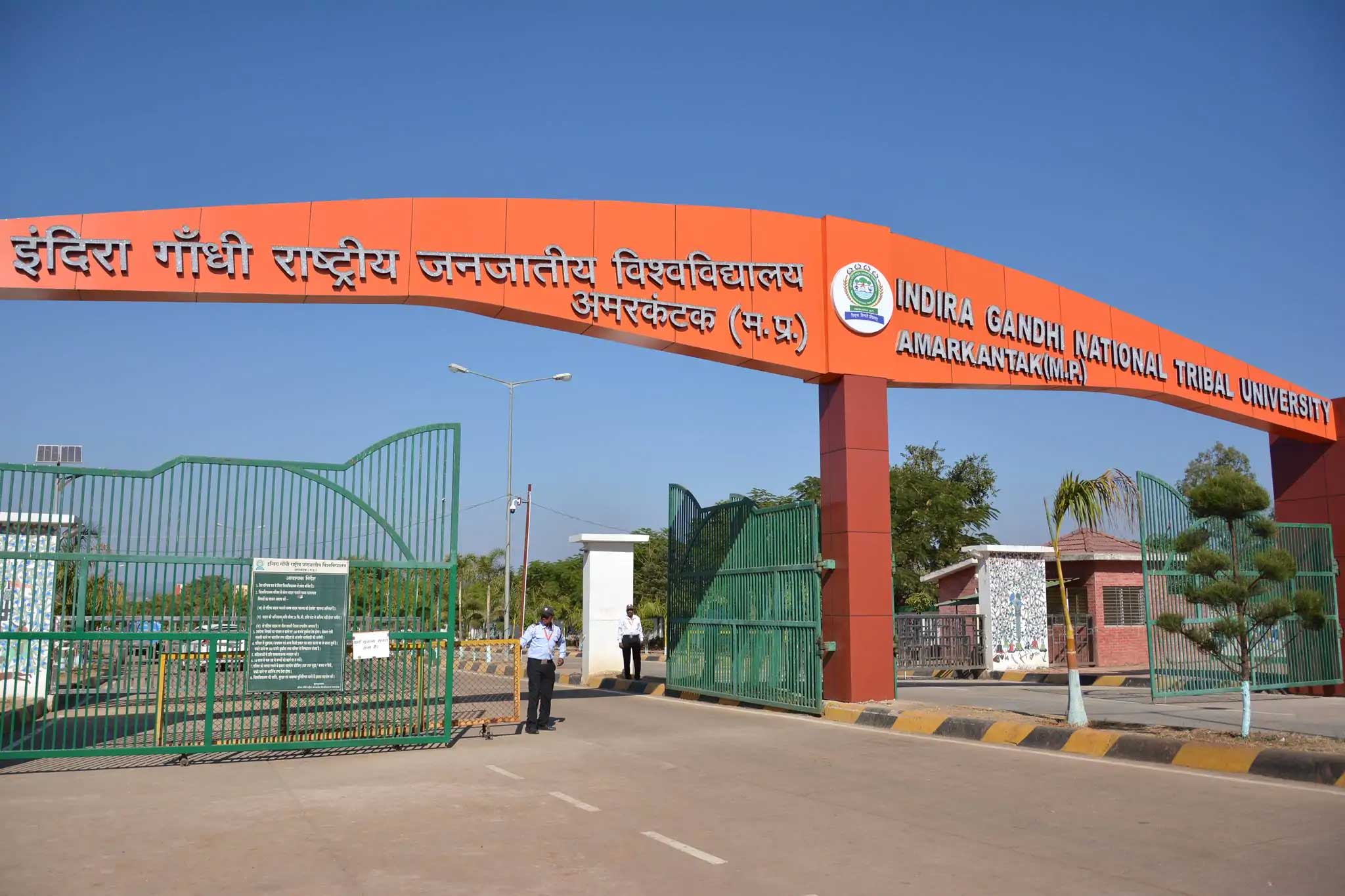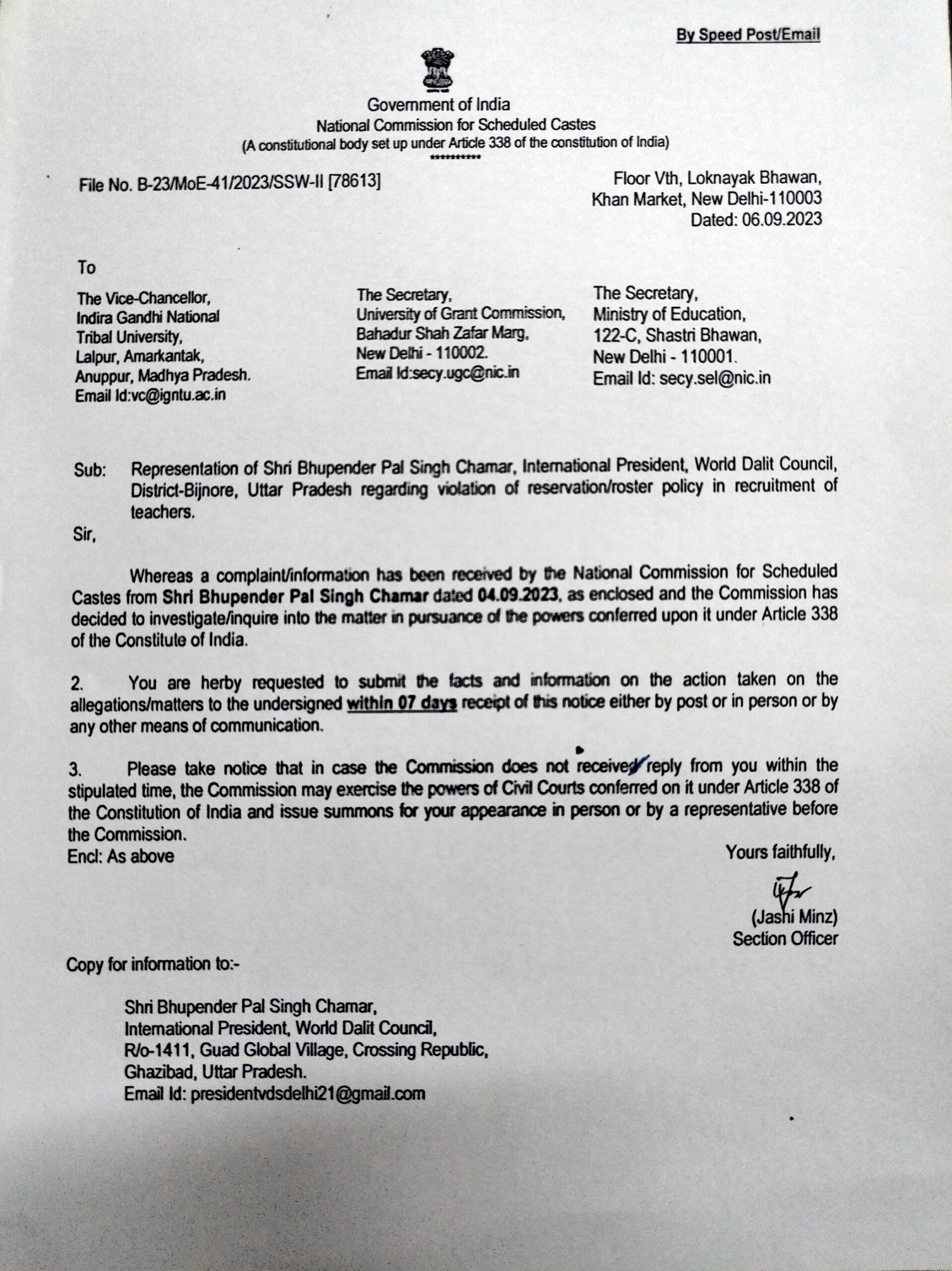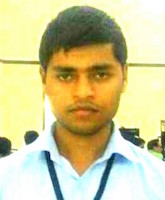In 2008, then Union Human Resource Development Minister Arjun Singh tabled a Bill in the Lok Sabha, which, after parliamentary nod, became the Indira Gandhi National Tribal University Act 2007. Under the provisions of this Act, the Indira Gandhi National Tribal University (IGNTU) was established at Amarkantak in Madhya Pradesh’s Anuppur district. Among others, its objectives were: To provide avenues of higher education and research facilities primarily for the tribal population of India; to disseminate and advance knowledge by providing instructional and research facilities in tribal art, culture, tradition, language, medicinal systems, etc; to pay special attention to the improvement of the social, educational and economic conditions and welfare of the Scheduled Tribes within the Union of India, their intellectual, academic and cultural development.
But over the past couple of years, ignoring the basic objectives behind its establishment, the proportion of Adivasi students in the university has been allowed to drop precipitously. Also, the recruitment for academic and non-academic positions in the university has been mired in controversies. So much so that it seems as if the university is not meant for the Adivasis. Rather, in the name of the Adivasis, representation and domination of the upper classes is being enhanced in the institution.
First, the recruitment imbroglio. There are allegations that appointments were made arbitrarily without drawing up a roster and in contravention of the reservation norms. Questions are being raised on the advertisement issued by the university on 15 July 2023 (No. IGNTU/REC.Cell/2021/T-1) inviting applications for appointment to teaching positions in the university. The university’s teachers’ association and its SC, ST and OBC cells have objected to the advertisement.
On 21 August 2023, the liaison officer of SC cell, Professor Tanmay Ghorai, wrote to the university’s registrar protesting against the irregularities in the recruitment process. He said that appointments were being made arbitrarily without preparing a roster, in contravention of the directives issued by the University Grants Commission (UGC) from time to time. The posts previously occupied by assistant professors from SC and ST communities have been deliberately slotted as unreserved and as reserved for Economically Weaker Sections (EWS) candidates. Of the seven such posts, five were reserved for the SCs and two for STs. In blatant violation of the rules, an additional condition of being a “divyang” (differently-abled) has been added for appointment to three backlog posts reserved for SCs and one for OBCs. This is a mockery of the roster system, which bars changing the status of reserved posts.

The ST and the OBC cells have made similar objections. The letter also draws attention to the fact that vacant posts in some departments like Psychology, Education, Political Science and Biotechnology, which were advertised for the first time, have been categorized as backlog posts. The posts advertised for the first time cannot be categorized as backlog. It seems that some people in the university administration want candidates from the general and the EWS categories appointed to posts in popular departments (those in which the number of students is higher) and backlog posts to be kept vacant for an indefinite period, which goes against the basic concept of reservations. The letter also reminds the university administration that not a single post reserved for the STs in the Department of Tribal Studies has been advertised to date with the result that the department doesn’t have a single tribal teacher.
On 23 August 2023, the teachers’ association wrote to the registrar, citing the issues raised by the SC cell and pointing out the discrepancies in the advertisement for recruitment and demanded that discrepancies related to reservations as well as other issues be addressed and a new advertisement be issued after updating the roster register in accordance with the 200-point roster. Following this development, the meeting of the roster committee was reconvened but nothing of it.
After opposition to the addition of the condition of being a “divyang” for appointment to backlog posts, a two-member roster revision committee was constituted. The committee included two specialists from outside the university. They were K.G. Verma, a retired officer of the central government’s Department of Personnel and Training and Neeraj Tripathi, a deputy registrar with the Banaras Hindu University. At the meeting held on 1 September 2023, the two specialists said in clear terms that it was wrong to add the condition of being a divyang and that the advertisement should be reissued after making appropriate changes. This has been mentioned in the minutes of the meeting.
In April and July this year, former Madhya Pradesh Chief Minister and senior Congress leader Digvijaya Singh wrote on Twitter (now X) and Facebook with the hashtag #tribal_university_bachao_adivasi_chhatron_ki_shiksha_bachao that, “The Adivasi students at the Tribal University in Shahdol division are being deprived of education but Prime Minister Modi ji has said nothing on it. Is depriving the Adivasi students of higher education not reflective of the anti-Adivasi outlook of the BJP? Adivasi students have told me that the reservation for Adivasi students in the university has been reduced from 50 per cent to 7.6 per cent.
“Prime Minister, sir, the Tribal University was established with the objective of imparting higher education to Adivasi students. If that objective is not served, how can you say that your government is working in the interest of the Adivasis? If they do not study, how will they progress? I request you to ensure that Adivasi students get 50 per cent reservation in admissions to the only tribal university in the Adivasi-dominated Madhya Pradesh, located in the Shahdol division, in consultation with the chancellor and the vice-chancellor of the institution.”
The university is also apathetic to the interests of the SC students. An organization called Vishwa Dalit Parishad had lodged a complaint with the National Commission for Scheduled Castes regarding the changes in the reservation rules of the university. It has sought registration of an FIR against the university officials responsible for this and a stay on the admission process till the issue is resolved. The commission, taking the issue seriously, issued notices to the university’s vice-chancellor, the secretary of the UGC and secretary to the Union Ministry of Education, seeking their replies within seven days. The deadline is over but the commission has yet to take any further action.

It may be mentioned here that the advertisement, published on 15 July 2023, invited applications for appointment to 10 posts reserved for the STs, of which 8 were backlog posts. Posts reserved for the STs in the psychology, physical education, physical education (RCM), nursing, computer science (RCM) and biotechnology departments were advertised in September 2020 and then again in December 2020. However, they remained unfilled, following which, they were again advertised on 15 July 2023. These posts have been vacant for the past nine months and it is being said that in the next advertisement, the number of backlog posts reserved for STs will rise to 10.
Professor Navin Sharma, who has served as the chief hostel superintendent of the university, wrote in his recent Facebook post (as quoted in an article published on the news website Ghatatighatana.com): “The vice-chancellor has conspired against the Adivasis and has deliberately allowed many posts reserved for the STs to remain vacant for the past nine years. The recruitment department of the university has indulged in blatant irregularities but there is none among the Adivasis who can raise a voice of protest.” The post also claims that to deny admission to the local Adivasi students, the university was not made a centre for the Common University Entrance Test (CUET) in 2022-23. That resulted in a large number of local Adivasi students not taking the test, and thus losing the opportunity to be admitted to the institution.
Rohit Singh Maravi, vice-president of the Adivasi Chhatra Sangathan, Madhya Pradesh, says that at the time of its establishment, the IGNTU was the sole national tribal university in the country. It was established in Madhya Pradesh so that the Adivasis of central India, which has the biggest Adivasi population, can acquire a higher education and secure employment opportunities. At the time, 50 per cent of the seats in the university were reserved for the Adivasis. Between 2008 and 2013, 80-90 per cent of the university’s students were Adivasis.
After a new vice-chancellor took over in 2014, the proportion of Adivasi students fell to 50-60 per cent. By 2019, they formed only 25 per cent of the students. And now, in 2023, they number just 7.5 per cent of the students. They include students from Madhya Pradesh, Chhattisgarh, Jharkhand, Rajasthan and northeastern and southern states.
According to Maravi, CUET is one of the reasons why the number of Adivasi students in the university has been falling. Since 2022, students have been admitted on the basis of their CUET scores. Earlier, the university used to conduct its own entrance exam. He says that the university was launched using funds meant for the welfare of the Adivasis and it was supposed to impart higher education to Adivasi students. Thousands of crores of rupees were spent on the university. The university has now become popular and has even opened a branch in Manipur, where 50 per cent of the seats are reserved for the Adivasis. But at the main campus in Amarkantak, the quota has been scrapped and now CUET has become the sole basis of admissions, with the result that Adivasi students have almost been ousted from the institution.
According to Indrapal Markam, president of the Jay Adivasi Yuva Sangathan (JAYS), Madhya Pradesh, earlier, when offline entrance exam was conducted by the university, around 90 per cent of the students were Adivasis, who came from Dindori, Mandla, Balaghat, Anuppur, Umaria, Shahdol, Gaurela-Pendra-Marwahi, Bilaspur and other districts in Madhya Pradesh and Chhattisgarh. But after a new vice-chancellor took over and with the appointment of teachers from the general category, the number of Adivasi students has dropped drastically. He sees this as a conspiracy. The admissions are now done through CUET which is based on the CBSE curriculum. The poor Adivasi students, having studied under the Madhya Pradesh and Chhattisgarh Secondary Education Boards, are not acquainted with the CBSE curriculum and that is why the percentage of Adivasi students has dropped to just 7.5 per cent.
Rohit Maravi says that earlier, when the number of Adivasi students was higher, the university used to operate buses to ferry them from their homes in the surrounding districts to the institution and back. Two buses used to run from Pendra Road in Gaurela-Pendra-Marwahi district (Chhattisgarh), about 20-22 km away. Also, two buses used to ferry students from Rajendra Gram in Anuppur district and from Karanjia in Dindori district. With the number of Adivasi students dropping, the university has stopped these bus services. The students from the adjoining areas do not get hostel accommodation either.
(Translated from the Hindi original by Amrish Herdenia)
Forward Press also publishes books on Bahujan issues. Forward Press Books sheds light on the widespread problems as well as the finer aspects of Bahujan (Dalit, OBC, Adivasi, Nomadic, Pasmanda) society, culture, literature and politics. Contact us for a list of FP Books’ titles and to order. Mobile: +917827427311, Email: info@forwardmagazine.in)





